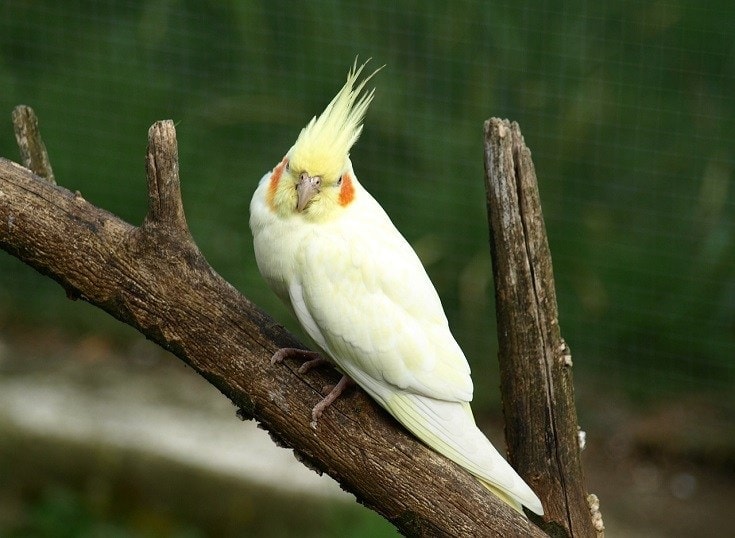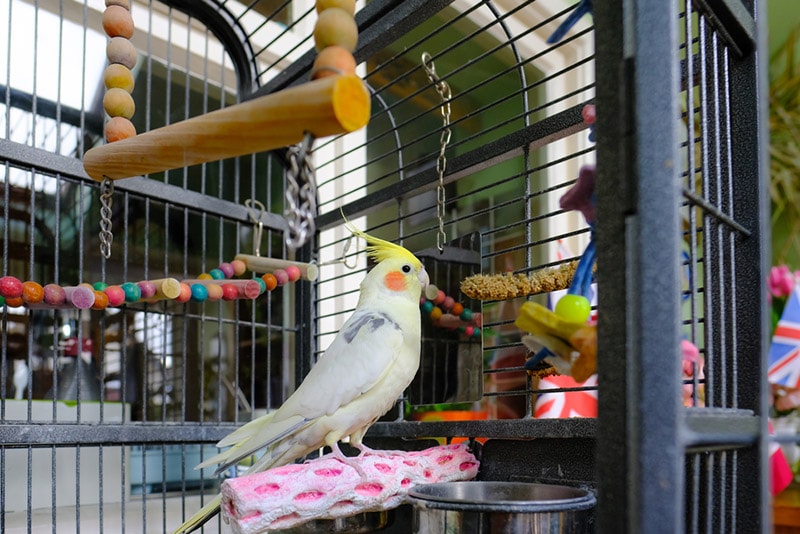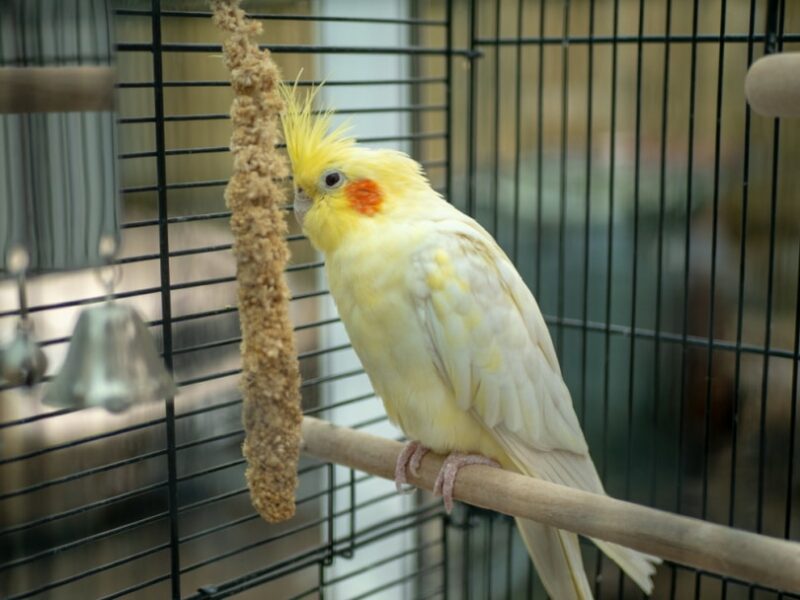How Long Does It Take a Cockatiel Egg to Hatch? Vet-Approved Facts
By Dr. Luqman Javed, DVM (Vet)
Updated on

If you’re a cockatiel owner interested in breeding these lovely birds, you may wonder how their egg-laying processes work. The reproductive cycle of these birds is much different than in other animals, so having many questions is normal.
Among all the questions about cockatiels and their egg hatching, one particular question stands out the most: how long does it take a cockatiel egg to hatch? The cockatiel egg incubation lasts 17–23 days, after which the hatching begins.
In this article, we’ll talk more about how to know when your cockatiel is ready to lay eggs, how long a cockatiel egg takes to hatch and provide more details about cockatiels and their egg-hatching process.
How Can You Know That Your Cockatiel Is Ready to Lay Eggs?
If you have a female and a male cockatiel, the two birds will likely engage in breeding, resulting in the female cockatiel laying eggs. Adult females may also lay eggs in the absence of a male if they are overfed.
Female cockatiels typically begin laying eggs 4 days after they’ve mated with a male cockatiel they’ve bonded with. Both birds play a part in preparing the nest, though instinctively, the male bird is more likely to “inspect” a nesting box before wooing the female to lay a clutch of eggs in it.
These indicators are typically a clear sign that your cockatiel is getting ready to lay its eggs; also, you may notice that she has larger droppings, and her vent may begin to swell.
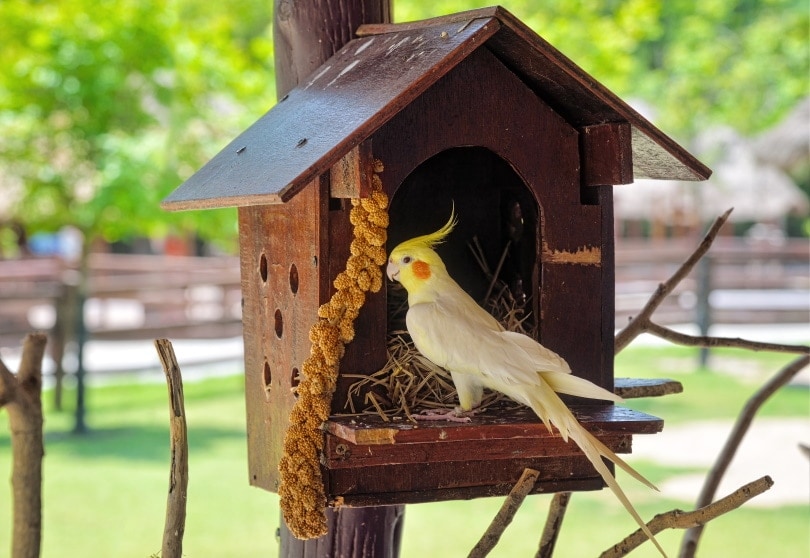
How Long Does It Take for Cockatiels to Lay Eggs?
Cockatiels usually only mate once per breeding season. The male’s sperm can remain viable inside a female’s body for up to a month. Female cockatiels often begin laying their clutch 4-6 days after they’ve accepted a nesting site, on average laying an egg every other day.
Fertile cockatiel eggs can remain viable for up to 10 days. Therefore, cockatiels typically don’t start the incubation process until they have at least three laid eggs. After the incubation begins, the cockatiel eggs should take anywhere between 17–23 days to hatch. The eggs should hatch similarly to how they were laid, meaning you can expect them to hatch every other day.
Not all of the eggs your cockatiel hatch will be fertile, so you shouldn’t remove any eggs until you see which ones are fertile.
My Cockatiel Laid Eggs, Now What?
After your cockatiel lays eggs, you’ll need to wait for them to catch. Again, not all cockatiel eggs are going to be fertile, which is something to keep in mind. There are several ways to determine if an egg is viable:
- An egg laid by a lone female with no male cockatiel nearby won’t be fertile.
- An egg that doesn’t hatch after 23 days of incubation isn’t fertile.
- Eggs can be candled to determine their viability.
If your cockatiel breeding pair is busy incubating their eggs, it’s best to just be patient; eggs that don’t hatch can be disposed of later.
If you’re attempting to hatch eggs in an incubator, you can candle them once they’ve been incubated for at least 10 days. Candling can also be done on eggs being incubated by a breeding pair of cockatiels, but you should ensure that you don’t disturb the parents when attempting to retrieve their eggs.
Egg candling involves shining a candlelight through the cockatiel egg to determine the stage of embryo development. It’s much easier to do egg candling on pale, light eggs, but it’s still manageable on darker eggs as well.
By observing the egg under the candlelight for a couple of seconds, you’ll be able to determine if the egg is fertile.
- Egg appears clear – either too early to tell or a non-viable egg
- Blood veins and movement – viable embryo
- A very dark embryo with no visible details – likely not viable
- A mass with a red ring – likely not viable
- Dark mass stuck to the side of the shell – likely not viable
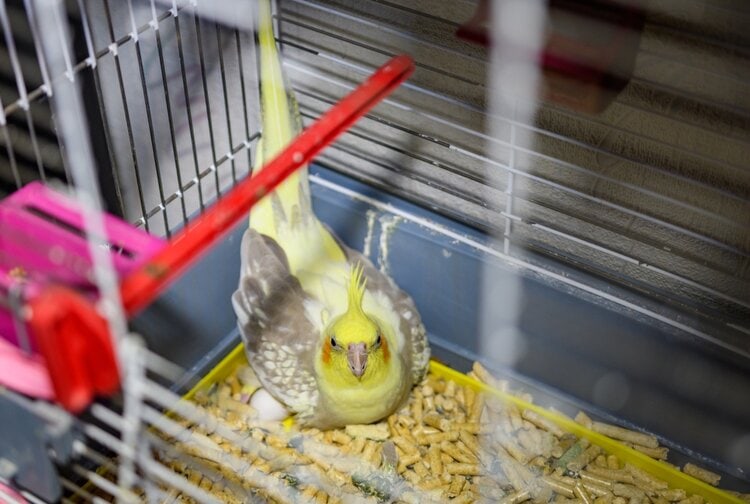
Unfertilized Eggs
Cockatiels have maternal instincts even towards unfertilized eggs, as they don’t know that the egg is not fertile. If your female bird lays eggs in the absence of a male, she is likely receiving too much nutrition, and you should have her examined by a veterinarian. You should not allow her to incubate the eggs, as the eggs may go rancid and burst, attracting bacteria to the nesting site and potentially leading to health issues for your bird.
Other tricks that may dissuade your female bird from laying eggs include the following:
- Remove the nesting box from her cage.
- Reduce the amount of hours she is exposed to direct sunlight to less than 12 hours per day.
- Move her cage to another location.
- Use mock eggs if you can’t remove her nesting box.
Mock eggs can be purchased from most pet stores and closely resemble real cockatiel eggs. Placing mock eggs in her nest might trick her into thinking that her clutch has been laid, and as a result, she may stop laying eggs. However, this isn’t always the case. Working with your veterinarian to determine the cause of the egg laying is crucial to breaking this habit.
Fertilized Eggs
If you go through egg candling and determine that the cockatiel egg is fertile, you should simply return it back to their nest or incubator until they hatch.
Both the female and male cockatiel will switch in incubating the eggs, so they should have an appropriate nesting area that’s large enough to fit them. Until the eggs hatch, it’s best to leave your cockatiels alone for around 20ish days.
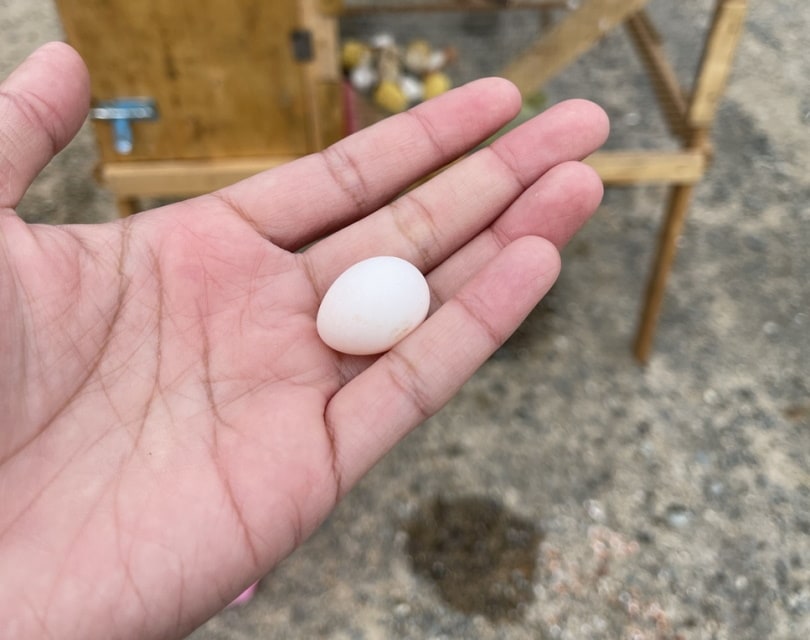
What Would Happen if the Cockatiel Egg Doesn’t Hatch?
Some cockatiel eggs may not hatch due to various reasons. In this case, the best thing to do is to discard the eggs. There are several possible reasons for the eggs not hatching.
Reasons why some cockatiel eggs never hatch:
- One or both of the birds are not mature enough to breed. It’s advised to only attempt mating once both birds are at least 2 years old.
- Your birds aren’t compatible with each other.
- One of your birds has an underlying health issue which led to poor reproductive performance.
- The nest box wasn’t appropriate for the clutch of eggs.
- The environmental conditions led to embryo death during the development process.
How Long Do Baby Cockatiels Stay In Their Nest?
Newly hatched cockatiels are called hatchlings. Once hatched, they are known as nestlings and stay inside their nest for a period of about 4-5 weeks. After this, they’re known as fledglings and emerge from their nest. Though they may still rely on their parents at this time, they quickly gain independence and flight confidence and are considered fully weaned by the time they are 6-8 weeks old.
Final Thoughts
After your cockatiels engage in mating, the female will likely lay eggs, and the eggs will take around 17–23 days to hatch. It’s best to wait 23 days before discarding eggs perceived as non-viable.
Remember to take good care of your cockatiels during this period, and ensure you provide enough food for the parents to be able to get enough nutrients to raise their chicks.
Featured Image Credit: YK, Shutterstock



